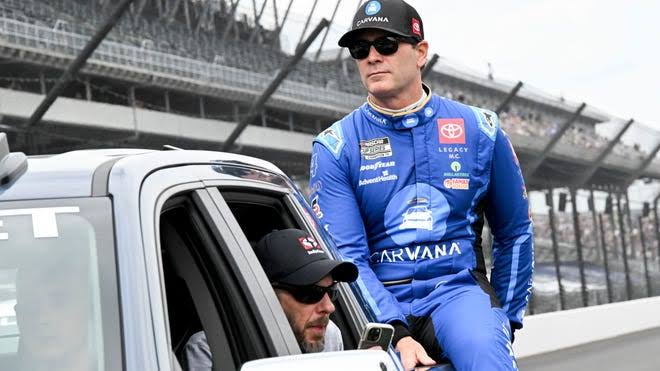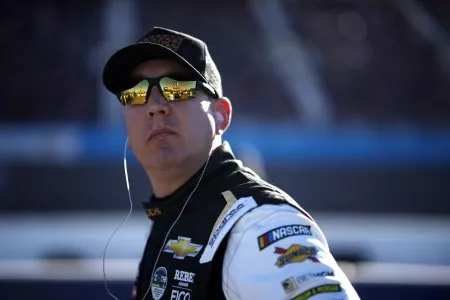What Are Some of the Penalties for Breaking the NASCAR Rules?
NASCAR (National Association for Stock Car Auto Racing) is one of the most popular and closely followed motorsports in the world, known for its high-speed races, intense rivalries, and passionate fanbase. To maintain fairness, safety, and integrity in the sport, NASCAR has established a comprehensive set of rules and regulations that govern everything from vehicle specifications to driver conduct. These rules are in place to ensure that the races are as competitive, safe, and fair as possible. However, when drivers, teams, or individuals break these rules, they can face a wide range of penalties.
In this article, we will explore the different penalties that NASCAR imposes for rule violations, detailing the nature of the offenses, the enforcement mechanisms, and the various consequences that can follow. These penalties not only affect the drivers but can also impact team owners, crew members, and others involved in the NASCAR ecosystem.
1. Overview of NASCAR Rules and Regulations
NASCAR’s rulebook is vast, covering numerous areas, including:
Car specifications: These regulations define the size, shape, engine configuration, and parts used in the cars.
Technical inspection: Every car must pass inspection before the race, and failure to meet standards can lead to penalties.
Driver conduct: NASCAR has a code of conduct that applies to how drivers interact with each other on and off the track.
Team and crew member rules: Crew members are held to a certain standard of conduct, especially when it comes to working on the car during pit stops or handling equipment.
Breaking these rules can have serious consequences, ranging from fines to disqualification, depending on the severity of the violation.
2. Categories of Penalties in NASCAR
NASCAR penalties are typically divided into three main categories:
L1 Penalties: These are considered the least severe and are often related to technical violations, such as a minor discrepancy in a car’s setup or weight. L1 penalties usually result in a fine or points deduction but do not typically affect a driver’s finishing position.
L2 Penalties: These are more serious and typically involve violations that affect the car’s performance or the team’s ability to compete. L2 penalties often lead to the loss of points, the suspension of crew members, or fines.
L3 Penalties: These are the most severe penalties and usually result from major infractions, such as intentional rule-breaking or actions that jeopardize the integrity of the sport. L3 penalties can include disqualification, suspension of key personnel, or large fines.
3. Penalties for Technical Violations
One of the most common types of rule violations in NASCAR involves technical infractions, where a car does not meet the required specifications. These types of penalties are generally enforced after pre-race or post-race inspections.
a. Car Specifications Violations
NASCAR has strict regulations regarding the size and configuration of the cars used in its events. These regulations include rules on body measurements, the type of tires used, engine specifications, and other aspects of the car’s setup. If a car is found to be in violation of any of these technical specifications, it could face penalties. For example, a car may be deemed illegal if its weight exceeds the limit, if the engine is not in compliance with NASCAR’s regulations, or if the bodywork is found to be altered in ways that provide an unfair aerodynamic advantage.
Penalties for Car Specification Violations: Depending on the severity of the violation, penalties may include fines, loss of points, or disqualification from the race. If the violation is discovered during pre-race inspection, the team may be forced to make changes to the car before the race starts. If the violation is found after the race, the driver’s finishing position may be nullified.
b. Unapproved Parts and Components
Another common technical violation in NASCAR involves the use of unapproved parts or components. NASCAR maintains a list of approved parts, and teams must use only these parts in their cars. If a team is found to have used an illegal part, such as a non-compliant exhaust system, shock absorbers, or suspension components, the team could face penalties.
Penalties for Unapproved Parts: The penalties for using illegal parts are typically severe and can include fines, loss of championship points, and in some cases, a suspension of key personnel such as the crew chief.
4. Penalties for Driver Conduct Violations
While NASCAR’s technical rules often dominate the penalty landscape, driver behavior on the track is also heavily scrutinized. NASCAR has a code of conduct for drivers that outlines acceptable and unacceptable actions, such as unsportsmanlike behavior, aggressive driving, and dangerous driving.
a. Aggressive Driving and On-Track Incidents
Incidents like intentional wrecking, excessive blocking, or unsafe driving that endangers other competitors can lead to severe penalties. NASCAR is particularly strict about drivers using their cars as weapons or engaging in retaliatory actions that disrupt the race.
Penalties for Aggressive Driving: Drivers found guilty of aggressive driving or causing accidents deliberately can face penalties ranging from fines to suspension. In some cases, a driver may be placed on probation for future races, which limits their ability to engage in aggressive behavior without facing further consequences.
b. Physical Altercations
While rare, physical confrontations between drivers, crew members, or other NASCAR personnel are taken very seriously. Any form of violence, whether it takes place on or off the track, is prohibited.
Penalties for Physical Altercations: If a driver or team member is involved in a physical altercation, they could face suspension, heavy fines, and even permanent bans from certain events or series. Notable incidents in the past, such as fights in the pits or after the race, have led to fines, probationary periods, and suspensions.
5. Penalties for Team Violations
In NASCAR, penalties are not just limited to the drivers. Team owners, crew chiefs, and other team members also have a responsibility to follow the rules. Violations involving the team can have significant consequences.
a. Crew Chief Infractions
The crew chief plays a crucial role in ensuring the car meets all technical specifications and in managing the strategy during the race. If a crew chief is found to be responsible for an infraction, the team can face significant penalties. For example, if the crew chief is found to have intentionally manipulated the car to violate NASCAR’s technical rules, they could face a suspension, and the team could lose points.
Penalties for Crew Chief Violations: Crew chief violations often result in suspension, fines, and loss of points for both the driver and the team. In some cases, the team may also be required to forfeit their prize money for the race in which the violation occurred.
b. Unapproved Testing
NASCAR has specific rules regarding testing. Teams are not allowed to conduct certain types of testing, especially on tracks used for events. Unapproved testing is seen as an attempt to gain an unfair competitive advantage.
Penalties for Unapproved Testing: Violations in this area can result in significant fines, suspension of key personnel, and even disqualification from races. Teams found guilty of testing outside the prescribed parameters could lose valuable points in the standings.
6. Penalties for Violating NASCAR’s Substance Abuse Policy
Safety is a top priority in NASCAR, and the organization has a strict substance abuse policy to protect both the drivers and the integrity of the sport. Any driver or team member who is found to be using illegal substances, including performance-enhancing drugs or alcohol while under the influence, will face severe penalties.
a. Substance Testing and Violations
NASCAR conducts random drug testing for both drivers and crew members. If a participant tests positive for any banned substances, they are subject to penalties, which can be severe.
Penalties for Substance Abuse Violations: A positive drug test can result in a suspension, fines, and in some cases, permanent expulsion from NASCAR. The length of the suspension depends on the nature of the violation, with repeat offenders facing harsher penalties.
7. Penalties for Failing to Follow NASCAR’s COVID-19 Protocols
In recent years, NASCAR has also had to enforce specific health and safety rules related to the COVID-19 pandemic. These include restrictions on team personnel, the use of face masks, and protocols for social distancing. Violations of these rules can result in penalties for both drivers and team members.
Penalties for COVID-19 Protocol Violations: Individuals or teams found to be in violation of NASCAR’s COVID-19 protocols may face fines, suspension, or temporary removal from the event. Such violations can impact both the team’s immediate performance and its long-term participation in the series.
8. Appealing NASCAR Penalties
In cases where teams or individuals believe that a penalty is unjustified, they have the right to appeal. NASCAR has an appeals process, where a panel of independent officials reviews the case and determines whether the penalty should be reduced, upheld, or overturned. The appeal process provides a fair mechanism for resolving disputes and ensuring that penalties are applied appropriately.
9. Notable Examples of NASCAR Penalties
Throughout its history, NASCAR has handed out several high-profile penalties that have shaped the sport. Some famous incidents include:
The “Spingate” Scandal: In 2013, NASCAR handed down severe penalties to Michael Waltrip Racing after it was revealed that they had manipulated race results by intentionally causing a caution in the final laps of a race. The penalties included the loss of points, fines, and suspensions for key team personnel.
The 2008 “Car of Tomorrow” Penalties: During





